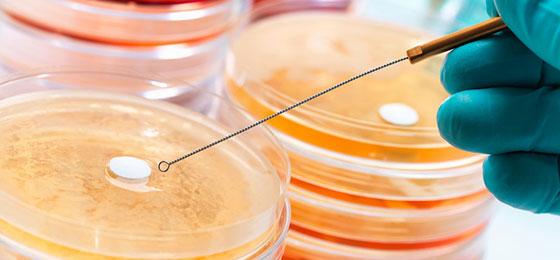Portrait

NRP 72 aims to develop measures to stop the spread of microorganisms that are resistant to antibiotics and to improve treatment.
All over the world, more and more pathogens are becoming resistant to today’s antibiotics. Because medicines are losing their effectiveness, once easy-to-treat infections are turning into deadly diseases. The National Research Programme “Antimicrobial Resistance” (NRP 72) investigates possible counteractions to this development.
NRP 72 brings together human and veterinary medical practitioners, biologists and environmental scientists to work in an interdisciplinary setting. The One Health approach is pivotal. When it comes to antibiotic resistance, the health of humans is linked very closely with the health of farm animals as well as with the environment, for instance through the transmission of resistant germs in wastewater.
NRP 72 considers three main aspects:
- Increasing knowledge about resistance development and transmission mechanisms in order to interrupt these processes;
- Development of rapid diagnostic techniques and discovery of novel antimicrobial molecules to improve the treatment of humans and animals;
- Proposal of recommendations and intervention measures for human and veterinary medical practitioners and farmers for a more targeted use of antibiotics.
The Swiss National Science Foundation was commissioned by the Federal Council on 24 June 2015 to carry out the National Research Programme "Antimicrobial Resistance". The overall funding is CHF 20 million. The projects will be conducted at universities and higher education institutions throughout Switzerland and will be completed by the end of 2021.
